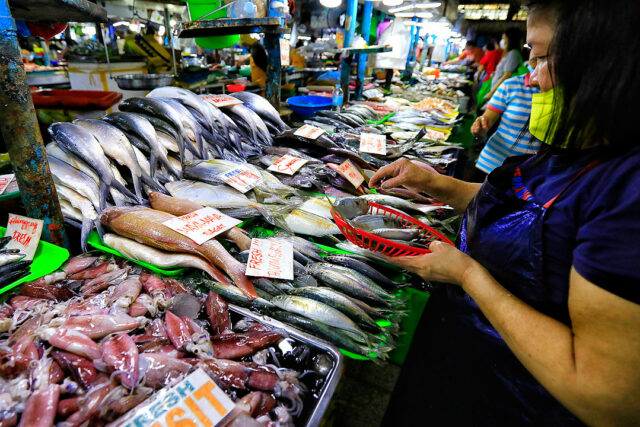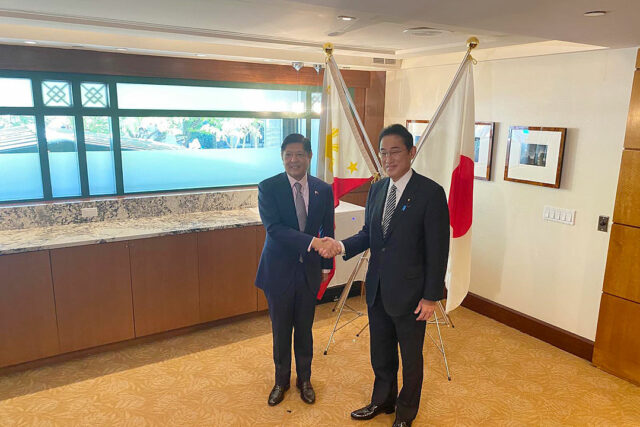THE PHILIPPINE central bank raised benchmark interest rates on Thursday for a fifth time this year to rein in persistently high inflation amid a struggling peso and hawkish US Federal Reserve.
The Bangko Sentral ng Pilipinas (BSP) increased its overnight borrowing rate by 50 basis points (bps) to 4.25% effective Friday, and its corresponding lending rate to 4.75%, as predicted by 11 of 15 analysts in a BusinessWorld poll last week.
“Price pressures continue to broaden,” it said in a statement. “Second-round effects continue to manifest, with inflation expectations remaining elevated in September following the approved minimum wage and transport fare increases.”
The move followed the Fed’s 75-bp hike and signals of larger increases to come that caused the peso and Philippine stocks to tumble. The central bank has raised key rates by 225 bps since May.
“Average inflation is still projected to breach the upper end of the 2-4% target range at 5.6% in 2022,” the central bank said, adding that the forecast for next year had also increased to 4.1%. The forecast for 2024 eased to 3%.
The central bank would “take all necessary actions to steer inflation towards a target-consistent path over the medium term, consistent with its primary mandate to promote price and financial stability.”
BSP said the risks to the inflation outlook remained on the upside until next year and broadly balanced in 2024. Price pressures might continue to come from rising global nonoil prices and petitions for more fare increases.
It also cited the pressure from typhoons on the prices of food items including sugar.
“The impact of a weaker-than-expected global economic recovery continues to be the main downside risk to the outlook,” it added.
The central bank noted that given elevated uncertainty about the inflation environment, there is a need for follow-through action to anchor inflation expectations and prevent price pressures from becoming further entrenched.
“The domestic economy can accommodate a reasonable tightening of the monetary policy stance, as demand has generally held firm owing to improved employment outturns and ample liquidity and credit,” it added.
It also urged the government to enforce timely nonmonetary interventions to ease the impact of persistent supply-side pressures on food and other commodity prices.
The consumer price index climbed to 6.3% year on year in August from the nearly four-year high of 6.4% a month earlier and 4.4% a year ago. It was the fifth straight month that inflation exceeded the BSP’s 2-4% target this year.
BEATEN PESO
The central bank’s rate increase had little impact on the battered peso as it weakened to a fresh record low against the dollar after the Fed’s 75-bp rate increase for a third time this year.
It closed at P58.49 against the dollar, down by 49 centavos from its P58 finish on Wednesday, data from the Bankers Association of the Philippines showed.
The peso has weakened by 14.68% or P7.49 this year from its P51-a-dollar close last year.
“The intention is not to target a particular level for the exchange rate,” BSP Deputy Governor Francisco G. Dakila, Jr. told a news briefing after the rate hike decision. “That is not the policy objective. In deciding on the appropriate stance of monetary policy, the priority is to bring inflation back to within the target band over the medium term.”
The rate increase should help ease pressure on the peso, he said. “The BSP stands ready to participate in the foreign exchange market only to ensure orderly market conditions and to reduce excessive short-term volatility in the exchange rate.”
The central bank would also use other tools to respond to exchange rate fluctuations to ensure that legitimate demand for foreign currency is satisfied, he added.
The BSP might have to offload more foreign exchange reserves to manage the peso’s depreciation, said Emilio S. Neri, Jr., lead economist at Bank of the Philippine Islands in Manila.
“This could put the country’s credit rating at risk since a substantial decline in reserves will lead to a deterioration in the country’s external position,” he said in a note.
The gross international reserves hit $98.98 billion as of end-August, slipping by 0.85% from a month earlier and by 8.3% from a year earlier, according to BSP data. It was the sixth consecutive month of decline.
More rate hikes are likely in the near term, but the tightening cycle might end this year, Gareth Leather, senior Asia economist at London-based Capital Economics, said in a note. The Philippine central bank will have too more rate meetings this year.
“Further tightening is likely in the near term, but with inflation having probably peaked and the economic recovery likely to struggle over the coming months, the tightening cycle is likely to be over by yearend,” he said.
“Overall, we are expecting a further 75 bps of hikes this year, but we think the tightening cycle will come to a finish before the end of 2022. In contrast, most other analysts are expecting further tightening next year,” he added.
The BSP might have to slow its rate increases to avoid an economic collapse, Miguel Chanco, chief emerging Asia economist at UK-based Pantheon Macroeconomics, said in a separate note. “We suspect that the peso’s sell-off to new lows is the main reason that the BSP did not deviate from its current path.”
“The Monetary Board will come to its senses soon, and pause its overly aggressive hiking cycle in the immediate future,” he said. “Crucially, the economy isn’t as strong as the BSP thinks it is, with a technical recession still very much on the cards after the Q2 contraction.” — Norman P. Aquino and Keisha B. Ta-asan

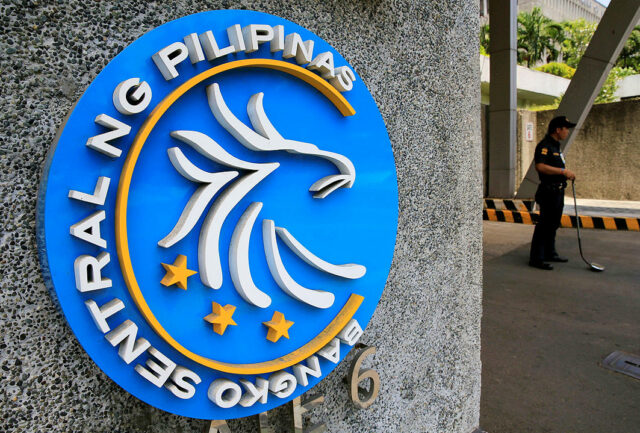
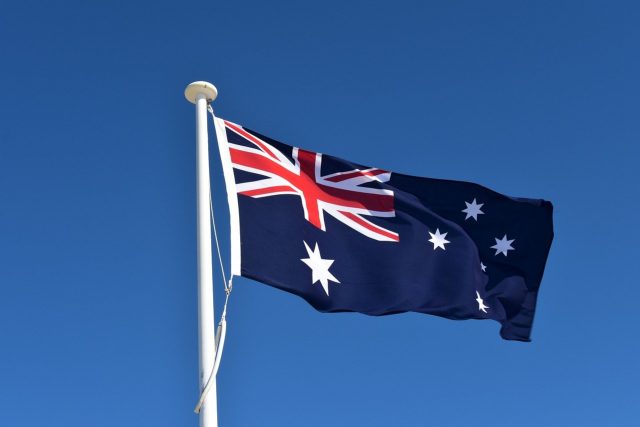
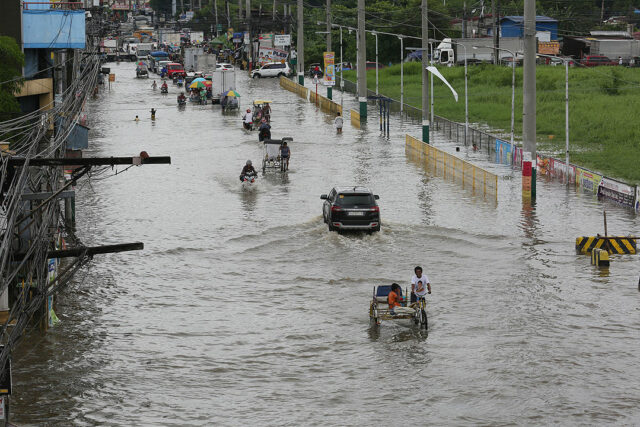
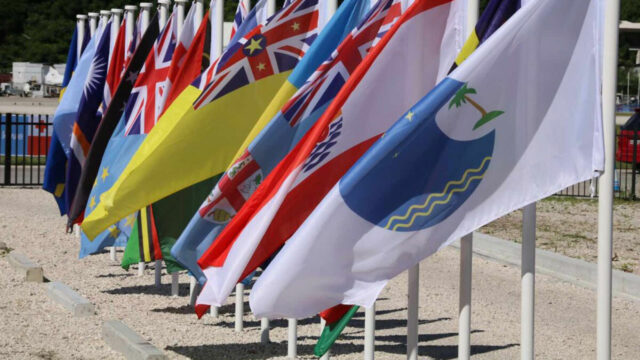
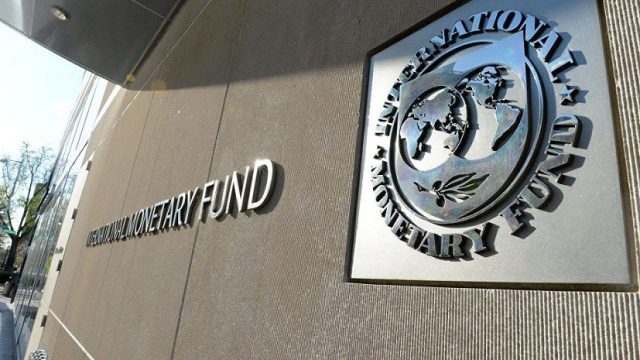
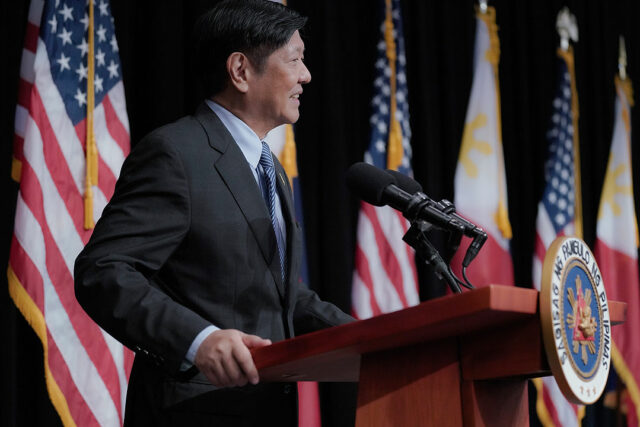

 The supermarket chain launched the No Plastic Use in all its stores in National Capital Region last July, initially done once a week through the Walastik Mondays or Walang Plastik Mondays. Under the campaign, customers, particularly the Perks and Tindahan Ni Aling Puring members, also receive a Php 1 cashback for every eco bag they use.
The supermarket chain launched the No Plastic Use in all its stores in National Capital Region last July, initially done once a week through the Walastik Mondays or Walang Plastik Mondays. Under the campaign, customers, particularly the Perks and Tindahan Ni Aling Puring members, also receive a Php 1 cashback for every eco bag they use.